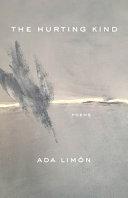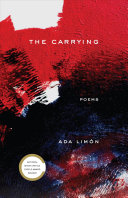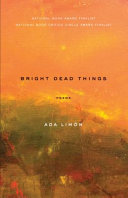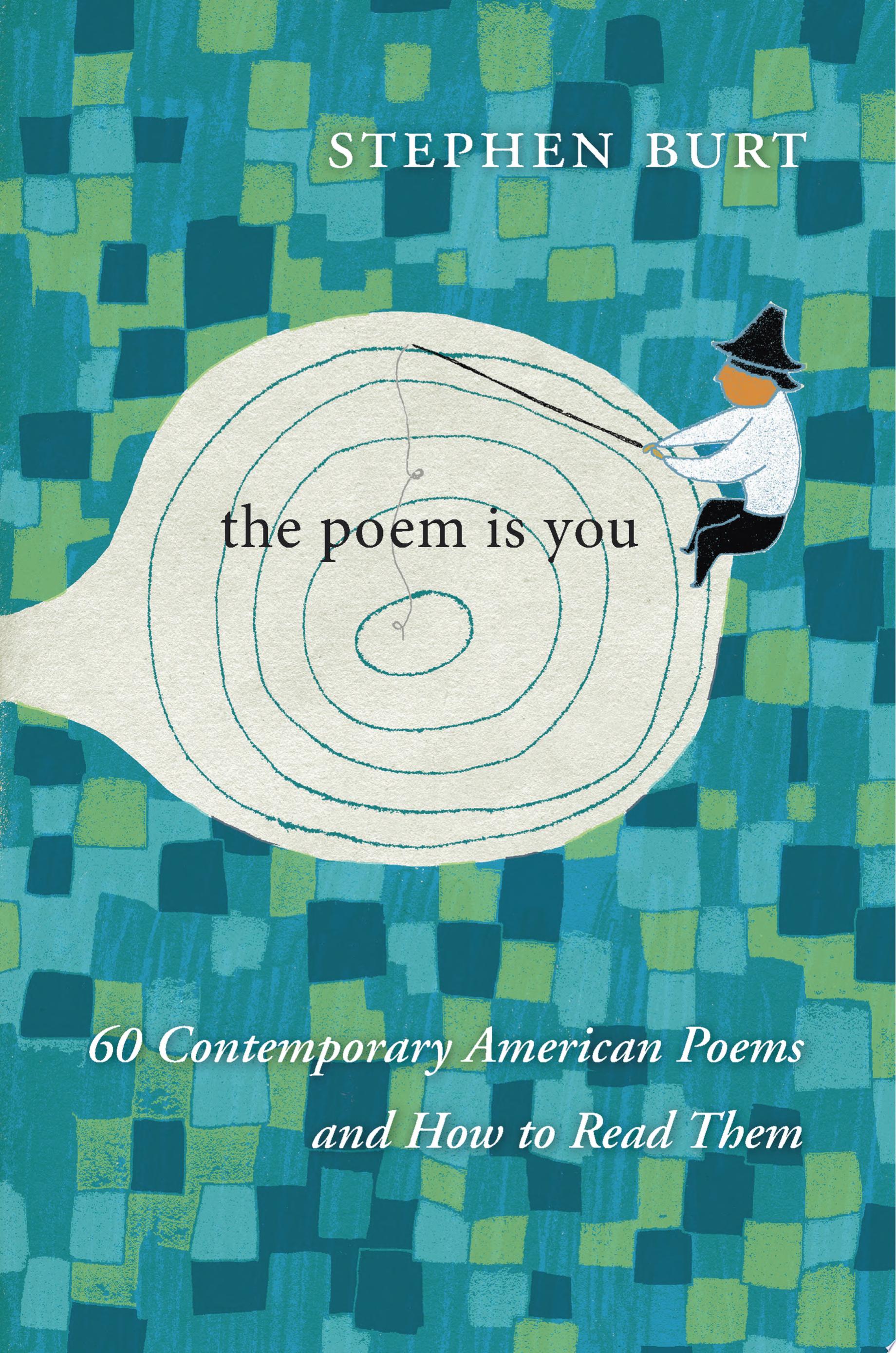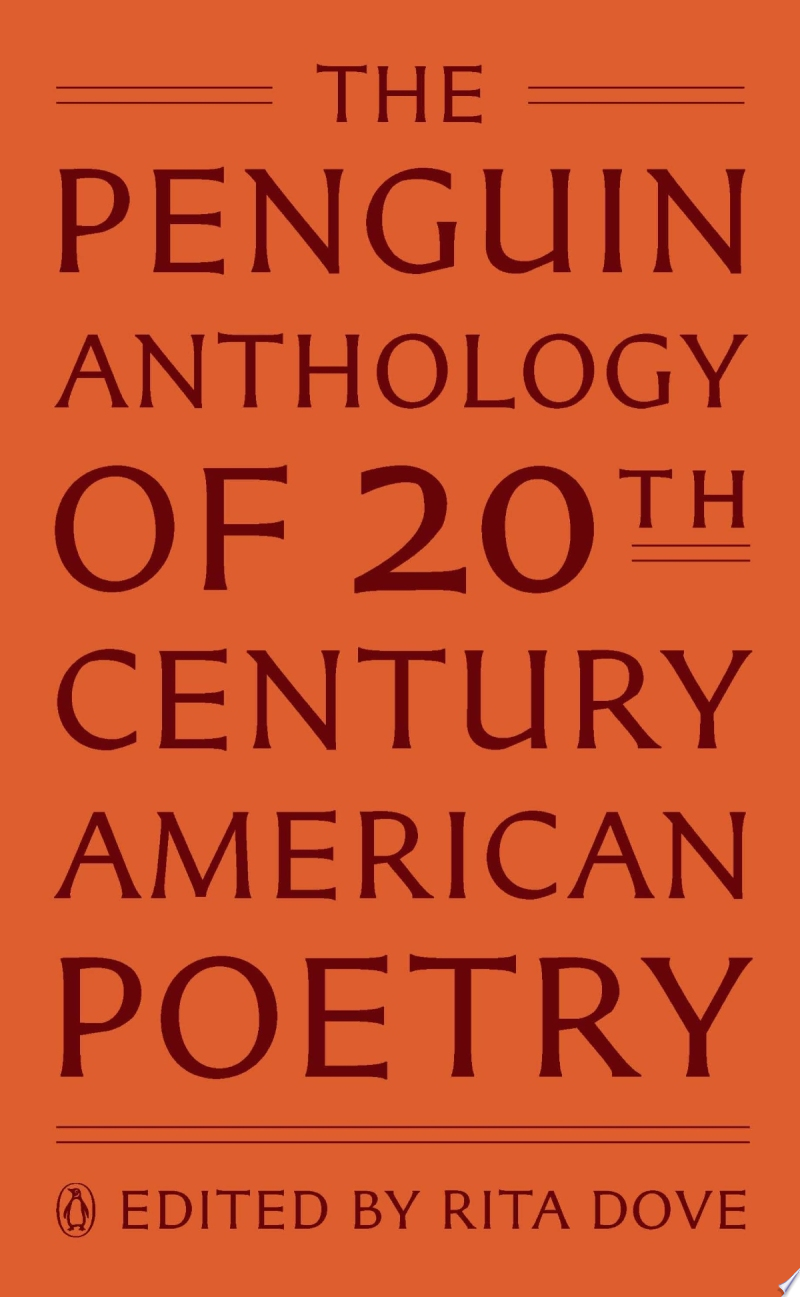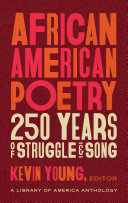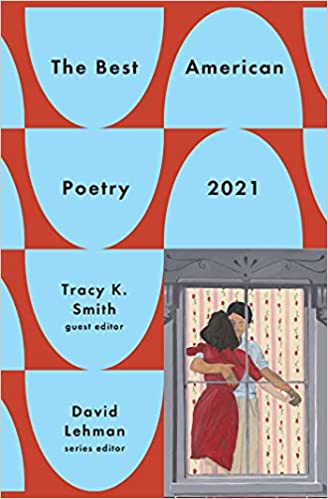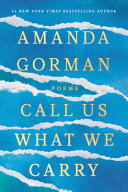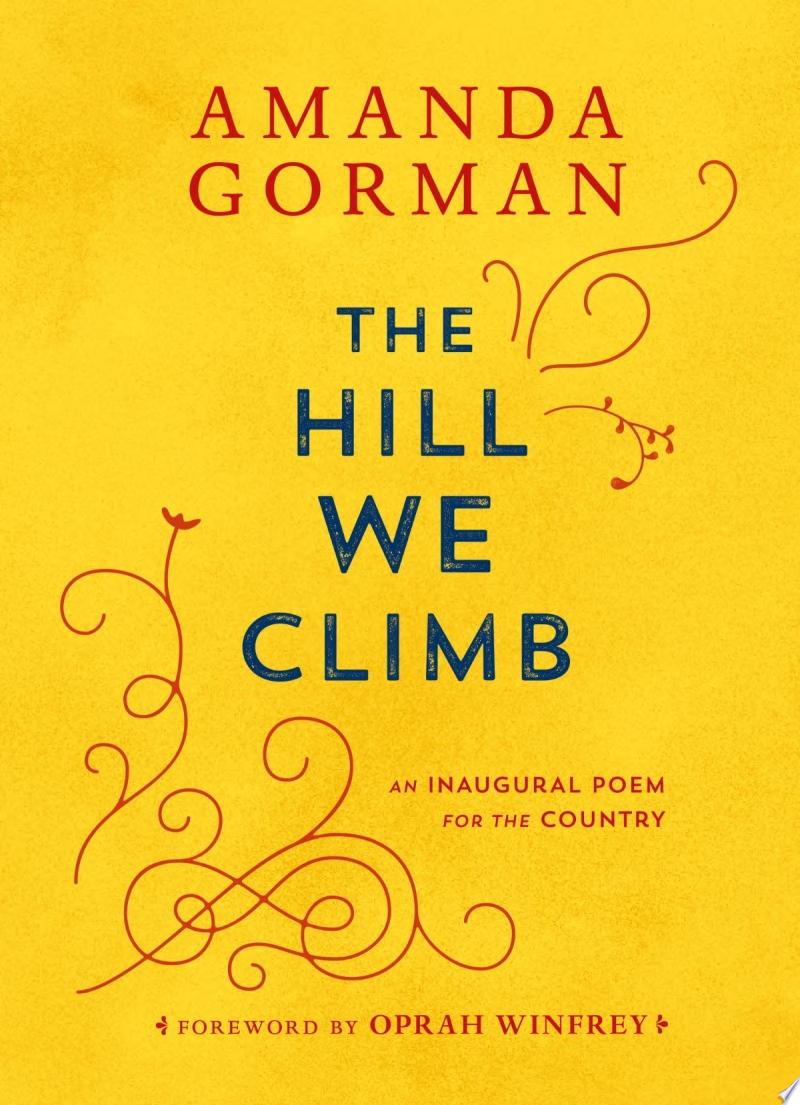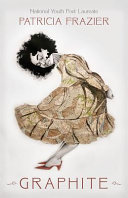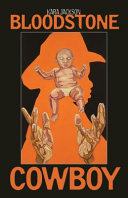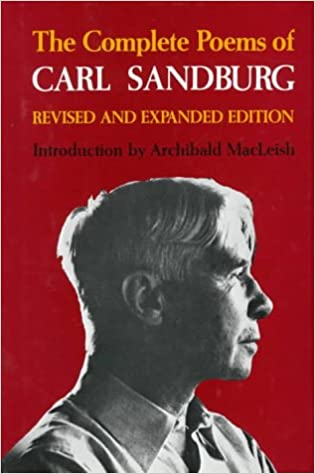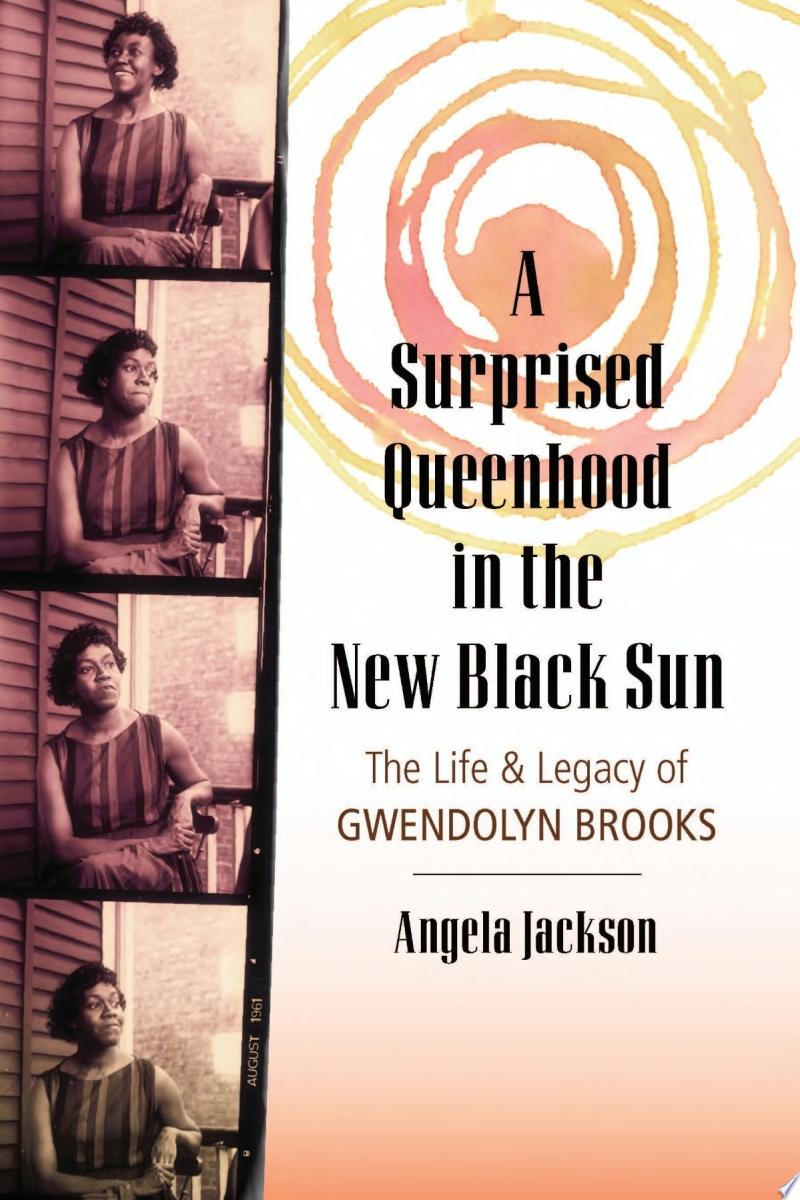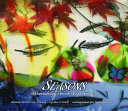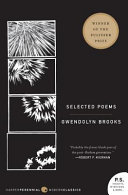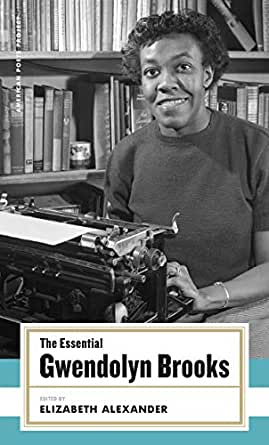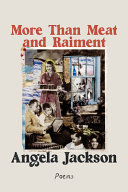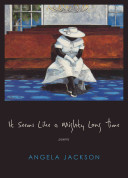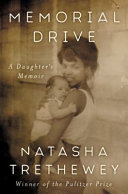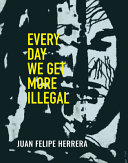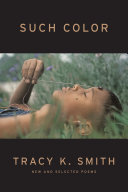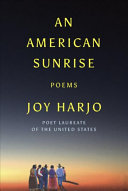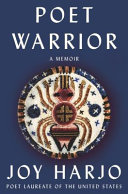List
The Hurting Kind
Ada Limón
An astonishing collection about interconnectedness--between the human and nonhuman, ancestors and ourselves--from National Book Critics Circle Award winner and National Book Award finalist Ada Limón.
"I have always been too sensitive, a weeper / from a long line of weepers," writes Limón. "I am the hurting kind." What does it mean to be the hurting kind? To be sensitive not only to the world's pain and joys, but to the meanings that bend in the scrim between the natural world and the human world? To divine the relationships between us all? To perceive ourselves in other beings--and to know that those beings are resolutely their own, that they "do not / care to be seen as symbols"?
With Limón's remarkable ability to trace thought, The Hurting Kind explores those questions--incorporating others' stories and ways of knowing, making surprising turns, and always reaching a place of startling insight. These poems slip through the seasons, teeming with horses and kingfishers and the gleaming eyes of fish. And they honor parents, stepparents, and grandparents: the sacrifices made, the separate lives lived, the tendernesses extended to a hurting child; the abundance, in retrospect, of having two families.
Along the way,we glimpse loss. There are flashes of the pandemic, ghosts whose presence manifests in unexpected memories and the mysterious behavior of pets left behind. But The Hurting Kind is filled, above all, with connection and the delight of being in the world. "Slippery and waddle thieving my tomatoes still / green in the morning's shade," writes Limón of a groundhog in her garden, "she is doing what she can to survive."
The Carrying
Ada Limón
WINNER OF THE NATIONAL BOOK CRITICS CIRCLE AWARD
FINALIST FOR THE PEN/JEAN STEIN BOOK AWARD
From National Book Award finalist Ada Limón comes The Carrying--her most powerful collection yet.
Vulnerable, tender, acute, these are serious poems, brave poems, exploring with honesty the ambiguous moment between the rapture of youth and the grace of acceptance. A daughter tends to aging parents. A woman struggles with infertility--"What if, instead of carrying / a child, I am supposed to carry grief?"--and a body seized by pain and vertigo as well as ecstasy. A nation convulses: "Every song of this country / has an unsung third stanza, something brutal." And still Limón shows us, as ever, the persistence of hunger, love, and joy, the dizzying fullness of our too-short lives. "Fine then, / I'll take it," she writes. "I'll take it all."
In Bright Dead Things, Limón showed us a heart "giant with power, heavy with blood"--"the huge beating genius machine / that thinks, no, it knows, / it's going to come in first." In her follow-up collection, that heart is on full display--even as The Carrying continues further and deeper into the bloodstream, following the hard-won truth of what it means to live in an imperfect world.
Bright Dead Things
Ada Limón
After the loss of her stepmother to cancer, Ada Limón chose to quit her job with a major travel magazine in New York, move to the mountains of Kentucky, and disappear. Yet, in the wake of death and massive transition, she found unexpected love, both for a man and for a place, all the while uncovering the core unity between death and beauty that drives our world. I am beautiful. I am full of love. I am dying,” the author writes. It's this narrative of transformation and acceptance that suffuses these poems. Unflinching and unafraid, Limón takes her reader on a journey into the most complex and dynamic realms of existence and identity, all while tracing a clear narrative of renewal.
Throughout, the poet lulls us into the security of her lines, only to cut into us where we least expect it. This is not New York and I am not important,” she writes midway through a poem about her new home. A poem opens with the revelation that Six horses died in a tractor-trailer fire. / There, that's the hard part. I wanted / to tell you straight away so we could / grieve together.”Bright Dead Things examines the chaos that is life, the dangerous thrill of living in a world you know you have to leave one day, and the search to find something that is ultimately disorderly, and marvelous, and ours.”
Illinois voices : an anthology of twentieth-century poetry
Illinois may at first glance seem distant from the epicenter of the literary rebellion of twentieth-century poetry, but much of that revolt was fomented by writers of the Chicago Renaissance and unfurled in the pages of Chicago's own little magazine, Harriet Monroe's Poetry. Edgar Lee Masters's Spoon River Anthology marked a further turning on the road of experimentation.
The Poem Is You
Stephanie Burt
Contemporary American poetry has plenty to offer new readers, and plenty more for those who already follow it. Yet its difficulty--and sheer variety--leaves many readers puzzled or overwhelmed. The critic, scholar, and poet Stephanie Burt sets out to help. Beginning in the early 1980s, where critical consensus ends, Burt canvasses American poetry of the past four decades, from the headline-making urgency of Claudia Rankine's Citizen to the stark pathos of Louise Glück, the limitless energy of Juan Felipe Herrera, and the erotic provocations of D. A. Powell.
The Poem Is You: Sixty Contemporary American Poems and How to Read Them is a guide to the diverse magnificences of American poetry today. It presents a wide range of poems selected by Burt for this volume, each accompanied by an original essay explaining how a given poem works, why it matters, and how the poem speaks to other parts of art and culture. Included here are some classroom classics (by Ashbery, Komunyakaa, Hass), less famous poems by very famous poets (Glück, Kay Ryan), and poems by prizewinning poets near the start of their careers (such as Brandon Som), and by others who are not--or not yet--well known.
The Poem Is You will appeal to poets, teachers, and students, but it is intended especially for readers who want to learn more about contemporary American poetry but who have not known where or how to start. It describes what American poets have fashioned for one another, and what they can give us today.
The Penguin Anthology of Twentieth-century American Poetry
Rita Dove
Penguin proudly presents an unparalleled survey of the best poems of the past century.
Rita Dove, Pulitzer Prize-winning poet and former U .S. Poet Laureate, introduces readers to the most significant and compelling poems of the past hundred years. Selecting from the canon of American poetry throughout the twentieth century, Dove has created an anthology that represents the full spectrum of aesthetic sensibilities-from styles and voices to themes and cultures-while balancing important poems with significant periods of each poet. Featuring poems both classic and contemporary, this collection reflects both a dynamic and cohesive portrait of modern American poetry and outlines its trajectory over the past century.
African American Poetry: 250 Years of Struggle & Song (LOA #333)
Kevin Young
A literary landmark: the biggest, most ambitious anthology of Black poetry ever published, gathering 250 poets from the colonial period to the present
Across a turbulent history, from such vital centers as Harlem, Chicago, Washington, D.C., Los Angeles, and the Bay Area, Black poets created a rich and multifaceted tradition that has been both a reckoning with American realities and an imaginative response to them. Capturing the power and beauty of this diverse tradition in a single indispensable volume, African American Poetry reveals as never before its centrality and its challenge to American poetry and culture.
One of the great American art forms, African American poetry encompasses many kinds of verse: formal, experimental, vernacular, lyric, and protest. The anthology opens with moving testaments to the power of poetry as a means of self-assertion, as enslaved people like Phillis Wheatley and George Moses Horton and activist Frances Ellen Watkins Harper voice their passionate resistance to slavery. Young’s fresh, revelatory presentation of the Harlem Renaissance reexamines the achievements of Langston Hughes and Countee Cullen alongside works by lesser-known poets such as Gwendolyn B. Bennett and Mae V. Cowdery. The later flowering of the still influential Black Arts Movement is represented here with breadth and originality, including many long out-of-print or hard-to-find poems.
Here are all the significant movements and currents: the nineteenth-century Francophone poets known as Les Cenelles, the Chicago Renaissance that flourished around Gwendolyn Brooks, the early 1960s Umbra group, and the more recent work of writers affiliated with Cave Canem and the Dark Room Collective. Here too are poems of singular, hard-to-classify figures: the enslaved potter David Drake, the allusive modernist Melvin B. Tolson, the Cleveland-based experimentalist Russell Atkins. This Library of America volume also features biographies of each poet and notes that illuminate cultural references and allusions to historical events.
The Best American Poetry 2021
David Lehman
The 2021 edition of the leading collection of contemporary American poetry is guest edited by the former US Poet Laureate Tracy K. Smith, providing renewed proof that this is “a ‘best’ anthology that really lives up to its title” (Chicago Tribune).
Since 1988, The Best American Poetry series has been “one of the mainstays of the poetry publication world” (Academy of American Poets). Each volume presents a choice of the year’s most memorable poems, with comments from the poets themselves lending insight into their work. The guest editor of The Best American Poetry 2021 is Tracy K. Smith, the former United States Poet Laureate, whose own poems are, Toi Derricotte’s words, “beautiful and serene” in their surfaces with an underlying “sense of an unknown vastness.” In The Best American Poetry 2021, Smith has selected a distinguished array of works both vast and beautiful by such important voices as Henri Cole, Billy Collins, Louise Erdrich, Nobel laureate Louise Glück, Terrance Hayes, and Kevin Young.
Call Us What We Carry
Amanda Gorman
The instant #1 New York Times, Wall Street Journal, and USA Today bestseller
The breakout poetry collection by #1 New York Times bestselling author and presidential inaugural poet Amanda Gorman
Formerly titled The Hill We Climb and Other Poems, the luminous poetry collection by #1 New York Times bestselling author and presidential inaugural poet Amanda Gorman captures a shipwrecked moment in time and transforms it into a lyric of hope and healing. In Call Us What We Carry, Gorman explores history, language, identity, and erasure through an imaginative and intimate collage. Harnessing the collective grief of a global pandemic, this beautifully designed volume features poems in many inventive styles and structures and shines a light on a moment of reckoning. Call Us What We Carry reveals that Gorman has become our messenger from the past, our voice for the future.
The Hill We Climb
Amanda Gorman
The instant #1 New York Times bestseller and #1 USA Today bestseller
Amanda Gorman's electrifying and historic poem "The Hill We Climb," read at President Joe Biden's inauguration, is now available as a collectible gift edition.
"Stunning." --CNN
"Dynamic." --NPR
"Deeply rousing and uplifting." --Vogue
On January 20, 2021, Amanda Gorman became the sixth and youngest poet to deliver a poetry reading at a presidential inauguration. Taking the stage after the 46th president of the United States, Joe Biden, Gorman captivated the nation and brought hope to viewers around the globe with her call for unity and healing. Her poem "The Hill We Climb: An Inaugural Poem for the Country" can now be cherished in this special gift edition, perfect for any reader looking for some inspiration. Including an enduring foreword by Oprah Winfrey, this remarkable keepsake celebrates the promise of America and affirms the power of poetry.
Graphite
Patricia Frazier
Patricia Frazier's Graphite is an ode to her grandmother and childhood home, the Ida B. Wells Projects, both which the poet lost to city- and state-sanctioned discrimination. The chapbook investigates loss and gentrification, particularly their effects on black young people from Chicago, whose political movement, resilience, and ability to make celebration after pain, drive these poems.
Bloodstone Cowboy
Kara Jackson
Kara Jackson's Bloodstone Cowboy is a reclamation of her lineage, an affirmation of self, and a declaration of her right to contain multitudes. These poems from the 2019 National Youth Poet Laureate complicate the definition of womanhood, troubling what it means to live in a body and love it. A complex and resilient love permeates Jackson's writing, from anthems praising her full belly to poems grappling with "sort-of" love for her midwestern hometown.
Drawing on the rich traditions of Lucille Clifton and Sharon Olds, this expansive collection proudly claims the inheritance of her family's southern roots, while carving out space for Jackson to exist fully without shame. As she writes, "when the day calls I will answer to my name / claim it"
The Complete Poems of Carl Sandburg
Carl Sandburg
The definitive edition of the Pulitzer Prize-winning collection. “A marvelous prosody, a perfect ear for the beautiful potentials of common speech, something he learned from folk song, but mostly he learned from just listening” (Kenneth Rexroth).
A Surprised Queenhood in the New Black Sun
Angela Jackson
A look back at the cultural and political force of Pulitzer Prize–winning poet Gwendolyn Brooks, in celebration of her hundredth birthday
Artist–Rebel–Pioneer
Pulitzer-Prize winning poet Gwendolyn Brooks is one of the great American literary icons of the twentieth century, a protégé of Langston Hughes and mentor to a generation of poets, including Sonia Sanchez, Nikki Giovanni, and Elizabeth Alexander.
Her poetry took inspiration from the complex portraits of black American life she observed growing up on Chicago’s Southside—a world of kitchenette apartments and vibrant streets. From the desk in her bedroom, as a child she filled countless notebooks with poetry, encouraged by the likes of Hughes and affirmed by Richard Wright, who called her work “raw and real.”
Over the next sixty years, Brooks’s poetry served as witness to the stark realities of urban life: the evils of lynching, the murders of Emmett Till and Malcolm X, the revolutionary effects of the civil rights movement, and the burgeoning power of the Black Arts Movement. Critical acclaim and the distinction in 1950 as the first black person ever awarded a Pulitzer Prize helped solidify Brooks as a unique and powerful voice.
Now, in A Surprised Queenhood in the New Black Sun, fellow Chicagoan and award-winning writer Angela Jackson delves deep into the rich fabric of Brooks’s work and world. Granted unprecedented access to Brooks’s family, personal papers, and writing community, Jackson traces the literary arc of this artist’s long career and gives context for the world in which Brooks wrote and published her work. It is a powerfully intimate look at a once-in-a-lifetime talent up close, using forty-three of Brooks’s most soul-stirring poems as a guide.
From trying to fit in at school (“Forgive and Forget”), to loving her physical self (“To Those of My Sisters Who Kept Their Naturals”), to marriage and motherhood (“Maud Martha”), to young men on her block (“We Real Cool”), to breaking history (“Medgar Evers”), to newfound acceptance from her community and her elevation to a “surprising queenhood” (“The Wall”), Brooks lived life through her work.
Jackson deftly unpacks it all for both longtime admirers of Brooks and newcomers curious about her interior life. A Surprised Queenhood in the New Black Sun is a commemoration of a writer who negotiated black womanhood and incomparable brilliance with a changing, restless world—an artistic maverick way ahead of her time.
Seasons
Gwendolyn Brooks
Seasons: A Gwendolyn Brooks Experience captures her life and work in a new book filled with thematic collections of her poetry and prose; photos; memories from family, friends, peers and mentees and gripping illustrations from the award-winning artist, Jan Spivey Gilchrist. Now more than ever the words of Gwendolyn Brooks demonstrate their continued relevance in the 21st century. The national centennial celebration is one part of a resurgence of appreciation for her powerful work and the impact she had on 20th century literature as well as the Black Arts Movement.
Selected Poems
Gwendolyn Brooks
The classic volume by the distinguished modern poet, winner of the 1950 Pulitzer Prize, and recipient of the National Book Foundation Medal for Distinguished Contribution to American Letters, showcases an esteemed artist's technical mastery, her warm humanity, and her compassionate and illuminating response to a complex world.
The Essential Gwendolyn Brooks
Gwendolyn Brooks
Discover the most enduring works of the legendary poet and first black author to win a Pulitzer Prize—now in one collectible volume
“If you wanted a poem,” wrote Gwendolyn Brooks, “you only had to look out of a window. There was material always, walking or running, fighting or screaming or singing.” From the life of Chicago’s South Side she made a forceful and passionate poetry that fused Modernist aesthetics with African-American cultural tradition, a poetry that registered the life of the streets and the upheavals of the 20th century. Starting with A Street in Bronzeville (1945), her epoch-making debut volume, The Essential Gwendolyn Brooks traces the full arc of her career in all its ambitious scope and unexpected stylistic shifts.
“Her formal range,” writes editor Elizabeth Alexander, “is most impressive, as she experiments with sonnets, ballads, spirituals, blues, full and off-rhymes. She is nothing short of a technical virtuoso.” That technical virtuosity was matched by a restless curiosity about the life around her in all its explosive variety. By turns compassionate, angry, satiric, and psychologically penetrating, Gwendolyn Brooks’ poetry retains its power to move and surprise.
About the American Poets Project
Elegantly designed in compact editions, printed on acid-free paper, and textually authoritative, the American Poets Project makes available the full range of the American poetic accomplishment, selected and introduced by today’s most discerning poets and critics.
More Than Meat and Raiment
Angela Jackson
Angela Jackson returns with a poetic collage that draws on imagery from the African American South and the South Side of Chicago, storytelling, the Black Arts Movement, and Hausa folklore. Deftly intertwining narrative and free verse, she expresses the complexities, beauty, and haunts of the multilayered Black voice. Jackson offers a stirring mixture of the music, food, and soul that have come to characterize her lyrical work.
The speakers of these poems reflect on memory and saga, history and legend. Voices recall evenings spent catching fireflies with a younger sister, the aroma of homemade rolls, the father who squeezes papers into his wallet alongside bills in order to appear wealthy (“a flock of green birds rustling inside / to get out for some extravagance”). A Black girl watches TV and dreams of the perfect partner. A citizen contends with the unrelenting devastation of police violence in a work reminiscent of Gwendolyn Brooks’s “verse journalism.” A mother loses her daughter only to witness her rebirth: “Praise be / the human being / that is being.”
In “For Our People,” an homage to Margaret Walker, Jackson summons the resilience and imagination of African Americans, celebrating “each of us injured or exalted, betrayer or betrayed, muted / and declamatory, all one, each of us all of us, each a private star beloved in the universe.” Lauded as one of American poetry’s most vivid voices, Jackson continues her reign among the country’s foremost wordsmiths. This sublime collection delves deep into the porch stories and folktales that have carried the Black voice through all its histories.
It Seems Like a Mighty Long Time
Angela Jackson
2015 PEN Open Book Award Finalist
Angela Jackson’s latest collection of poetry borrows its title from a lyric in Barbara Lewis’s 1963 hit single “Hello Stranger,” recorded at Chess Records in Chicago. Like the song, Jackson’s poems are a melodic ode to the African American experience, informed by both individual lives and community history, from the arrival of the first African slave in Virginia in 1619 to post-Obama America.
It Seems Like a Mighty Long Time reflects the maturity of Jackson’s poetic vision. The Great Migration, the American South, and Chicago all serve as signposts, but it is the complexity of individual lives—both her own and those who have gone before, walk beside, and come after—that invigorate this collection. Upon surveying so vast a landscape, Jackson finds that sorrow meets delight, and joy lifts up anger and despair. And for all this time, love is the agent, the wise and just rule and guide.
Memorial Drive
Natasha D. Trethewey
An Instant New York Times Bestseller
A New York Times Notable Book
One of Barack Obama's Favorite Books of 2020
Named One of the Best Books of the Year by: The Washington Post, NPR, Shelf Awareness, Esquire, Electric Literature, Slate, The Los Angeles Times, USA Today, and InStyle
A chillingly personal and exquisitely wrought memoir of a daughter reckoning with the brutal murder of her mother at the hands of her former stepfather, and the moving, intimate story of a poet coming into her own in the wake of a tragedy
At age nineteen, Natasha Trethewey had her world turned upside down when her former stepfather shot and killed her mother. Grieving and still new to adulthood, she confronted the twin pulls of life and death in the aftermath of unimaginable trauma and now explores the way this experience lastingly shaped the artist she became.
With penetrating insight and a searing voice that moves from the wrenching to the elegiac, Pulitzer Prize-winning poet Natasha Trethewey explores this profound experience of pain, loss, and grief as an entry point into understanding the tragic course of her mother's life and the way her own life has been shaped by a legacy of fierce love and resilience. Moving through her mother's history in the deeply segregated South and through her own girlhood as a "child of miscegenation" in Mississippi, Trethewey plumbs her sense of dislocation and displacement in the lead-up to the harrowing crime that took place on Memorial Drive in Atlanta in 1985.
Memorial Drive is a compelling and searching look at a shared human experience of sudden loss and absence but also a piercing glimpse at the enduring ripple effects of white racism and domestic abuse. Animated by unforgettable prose and inflected by a poet's attention to language, this is a luminous, urgent, and visceral memoir from one of our most important contemporary writers and thinkers.
Every Day We Get More Illegal
Juan Felipe Herrera
Voted a Best Poetry Book of the Year by Library Journal
Included in Publishers Weekly's Top 10 Poetry Books of the Year
One of LitHub's most Anticipated Books of the Year!
A State of the Union from the nation's first Latino Poet Laureate. Trenchant, compassionate, and filled with hope.
Many poets since the 1960s have dreamed of a new hybrid art, part oral, part written, part English, part something else: an art grounded in ethnic identity, fueled by collective pride, yet irreducibly individual too. Many poets have tried to create such an art: Herrera is one of the first to succeed.--New York Times
Herrera has the unusual capacity to write convincing political poems that are as personally felt as poems can be.--NPR
Juan Felipe Herrera's magnificent new poems in Every Day We Get More Illegal testify to the deepest parts of the American dream--the streets and parking lots, the stores and restaurants and futures that belong to all--from the times when hope was bright, more like an intimate song than any anthem stirring the blood.--Naomi Shihab Nye, The New York Times Magazine
From Basho to Mandela, Every Day We Get More Illegal takes us on an international tour for a lesson in the history of resistance from a poet who declares, 'I had to learn . . . to take care of myself . . . the courage to listen to my self.' You hold in your hands evidence of who we really are.--Jericho Brown, author of The Tradition
These poems talk directly to America, to migrant people, and to working people. Herrera has created a chorus to remind us we are alive and beautiful and powerful.--José Olivarez, Author of Citizen Illegal
The poet comes to his country with a book of songs, and asks: America, are you listening? We better listen. There is wisdom in this book, there is a choral voice that teaches us 'to gain, pebble by pebble, seashell by seashell, the courage.' The courage to find more grace, to find flames.--Ilya Kaminsky, author of Deaf Republic
In this collection of poems, written during and immediately after two years on the road as United States Poet Laureate, Juan Felipe Herrera reports back on his travels through contemporary America. Poems written in the heat of witness, and later, in quiet moments of reflection, coalesce into an urgent, trenchant, and yet hope-filled portrait. The struggle and pain of those pushed to the edges, the shootings and assaults and injustices of our streets, the lethal border game that separates and divides, and then: a shift of register, a leap for peace and a view onto the possibility of unity.
Every Day We Get More Illegal is a jolt to the conscience--filled with the multiple powers of the many voices and many textures of every day in America.
Former Poet Laureate Juan Felipe Herrera should also be Laureate of our Millennium--a messenger who nimbly traverses the transcendental liminalities of the United States . . .--Carmen Gimenez Smith, author of Be Recorder
Such Color
Tracy K. Smith
“Tracy K. Smith’s poetry is an awakening itself.” —Vogue
Celebrated for its extraordinary intelligence and exhilarating range, the poetry of Tracy K. Smith opens up vast questions. Such Color: New and Selected Poems, her first career-spanning volume, traces an increasingly audacious commitment to exploring the unknowable, the immense mysteries of existence. Each of Smith’s four collections moves farther outward: when one seems to reach the limits of desire and the body, the next investigates the very sweep of history; when one encounters death and the outer reaches of space, the next bears witness to violence against language and people from across time and delves into the rescuing possibilities of the everlasting. Smith’s signature voice, whether in elegy or praise or outrage, insists upon vibrancy and hope, even—and especially—in moments of inconceivable travesty and grief.
Such Color collects the best poems from Smith’s award-winning books and culminates in thirty pages of brilliant, excoriating new poems. These new works confront America’s historical and contemporary racism and injustices, while they also rise toward the registers of the ecstatic, the rapturous, and the sacred—urging us toward love as a resistance to everything that impedes it. This magnificent retrospective affirms Smith’s place as one of the twenty-first century’s most treasured poets.
An American Sunrise
Joy Harjo
In the early 1800s, the Mvskoke people were forcibly removed from their original lands east of the Mississippi to Indian Territory, which is now part of Oklahoma. Two hundred years later, Joy Harjo returns to her family's lands and opens a dialogue with history. In An American Sunrise, Harjo finds blessings in the abundance of her homeland and confronts the site where her people, and other indigenous families, essentially disappeared. From her memory of her mother's death, to her beginnings in the native rights movement, to the fresh road with her beloved, Harjo's personal life intertwines with tribal histories to create a space for renewed beginnings. Her poems sing of beauty and survival, illuminating a spirituality that connects her to her ancestors and thrums with the quiet anger of living in the ruins of injustice. A descendent of storytellers and "one of our finest--and most complicated--poets" (Los Angeles Review of Books), Joy Harjo continues her legacy with this latest powerful collection.
Poet Warrior
Joy Harjo
Joy Harjo, the first Native American to serve as U.S. poet laureate, invites us to travel along the heartaches, losses, and humble realizations of her poet-warrior road. A musical, kaleidoscopic, and wise follow-up to Crazy Brave, Poet Warrior reveals how Harjo came to write poetry of compassion and healing, poetry with the power to unearth the truth and demand justice.
Harjo listens to stories of ancestors and family, the poetry and music that she first encountered as a child, and the messengers of a changing earth--owls heralding grief, resilient desert plants, and a smooth green snake curled up in surprise. She celebrates the influences that shaped her poetry, among them Audre Lorde, N. Scott Momaday, Walt Whitman, Muscogee stomp dance call-and-response, Navajo horse songs, rain, and sunrise. In absorbing, incantatory prose, Harjo grieves at the loss of her mother, reckons with the theft of her ancestral homeland, and sheds light on the rituals that nourish her as an artist, mother, wife, and community member.
Moving fluidly between prose, song, and poetry, Harjo recounts a luminous journey of becoming, a spiritual map that will help us all find home. Poet Warrior sings with the jazz, blues, tenderness, and bravery that we know as distinctly Joy Harjo.
